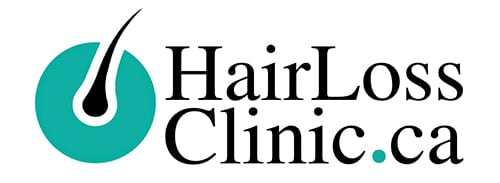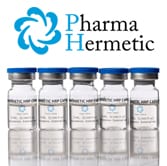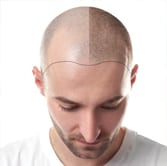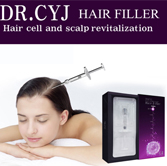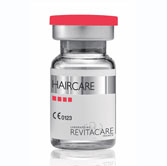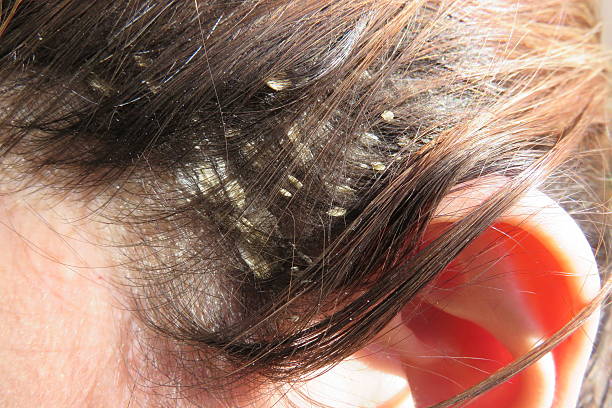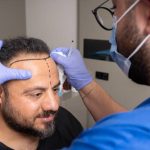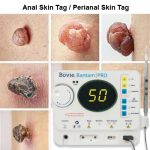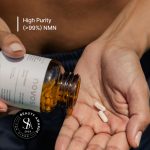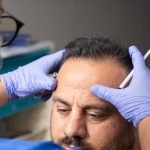July 3, 2023 By simonw Comments are Off dandruff vs dry scalp
Table of Contents
Introduction: Dandruff vs Dry Scalp
Dandruff and dry scalp are two common scalp conditions that can cause discomfort and embarrassment for many individuals. In this extensive article, we will delve into the underlying causes, distinctions, and available remedies for both dandruff and dry scalp conditions. By understanding these conditions and implementing proper care, you can effectively manage and alleviate their symptoms.
What is Dandruff?
Dandruff is a persistent scalp condition characterized by the excessive flaking and shedding of dead skin cells from the scalp. It often presents as white or yellow flakes that can be visible on the hair and shoulders. Dandruff is commonly associated with a yeast-like fungus called Malassezia, which thrives on the scalp and contributes to the overproduction of skin cells.
What is a Dry Scalp?
A dry scalp, on the other hand, is a condition characterized by a lack of moisture and oil on the scalp. It can result in itching, tightness, and small, dry flakes. A dry scalp is commonly influenced by environmental factors, including cold weather, low humidity levels, excessive washing, or the utilization of harsh hair products that strip away the scalp’s natural oils.
Understanding the Causes
Causes of Dandruff
The precise cause of dandruff remains unclear, although multiple factors contribute to its formation. These include an overgrowth of the Malassezia fungus, excessive oil production, sensitivity to certain hair care products, and a weakened immune system. Stress, hormonal changes, and certain medical conditions can also play a role in the occurrence of dandruff.
Causes of Dry Scalp
A dry scalp is primarily caused by external factors that strip the scalp of moisture. These factors include environmental conditions, such as cold weather and low humidity, as well as frequent washing with hot water and harsh shampoos. Additionally, certain medical conditions, such as eczema and psoriasis, can contribute to dry scalp.
Major Differences Between Dandruff and Dry Scalp
Visible Differences
The appearance of the flakes is one of the primary distinctions between dandruff and a dry scalp. Dandruff flakes are often larger, greasier, and have a yellowish colour, while dry scalp flakes are smaller, white, and dry in nature. Dandruff flakes also tend to be more persistent and adherent to the scalp, whereas dry scalp flakes are looser and easily fall off.
Differences in Symptoms
While both conditions can cause itching and flaking, dandruff is often accompanied by scalp redness and irritation. It may also lead to a tingling or burning sensation on the scalp. A dry scalp, on the other hand, primarily presents with itching and dryness without significant inflammation or discomfort.
Common Misconceptions About Dandruff and Dry Scalp
Are They in the Same Condition?
No, dandruff and dry scalp are not the same condition. Although they share some similarities, such as flaking and itching, their underlying causes and characteristics differ. Dandruff is primarily caused by a fungal overgrowth, while the dry scalp is related to the lack of moisture and oil on the scalp.
Can Dandruff Lead to Hair Loss?
Dandruff itself does not directly cause hair loss. However, severe and persistent scratching of the scalp due to dandruff can lead to hair breakage and temporary hair loss. It is important to address dandruff promptly and seek appropriate treatment to avoid excessive scalp irritation and hair damage.
Treatment of Dandruff
Over-the-counter Solutions
Mild to moderate cases of dandruff can often be effectively managed with over-the-counter anti-dandruff shampoos. These shampoos typically contain active ingredients such as zinc pyrithione, selenium sulphide, ketoconazole, or coal tar, which help to reduce the fungus and control flaking. It is important to follow the instructions on the product label and use the shampoo regularly for best results.
Medical Treatments for Dandruff
In cases where over-the-counter solutions are not effective, a dermatologist may prescribe stronger medicated shampoos, topical antifungal creams, or corticosteroid lotions to treat severe dandruff. These prescription treatments can help to reduce inflammation, control fungal growth, and manage the symptoms of dandruff. Seeking guidance from a healthcare professional is crucial to obtain an accurate diagnosis and suitable treatment plan.
Treatment of Dry Scalp
Home Remedies for Dry Scalp
Mild cases of the dry scalp can often be managed with simple home remedies. Consistently applying natural oils like coconut oil or olive oil to the scalp can assist in moisturizing and providing nourishment to the scalp. Avoiding hot water when washing the hair and using gentle, moisturizing shampoos can also help to retain moisture on the scalp. It is important to maintain a balanced and healthy diet, as proper nutrition can contribute to overall scalp health.
When to Seek Medical Help for Dry Scalp
If home remedies do not provide relief or if the dryness and discomfort persist, it may be necessary to seek medical help. A dermatologist or trichologist can evaluate the scalp condition, identify any underlying causes, and recommend appropriate treatments. They may prescribe medicated shampoos or topical treatments or recommend lifestyle changes to improve the moisture balance of the scalp.
Prevention of Dandruff and Dry Scalp
Lifestyle Changes
Making certain lifestyle changes can help prevent the occurrence of dandruff and dry scalp. These include practicing good scalp hygiene by regularly washing the hair with a gentle shampoo, avoiding excessive heat styling or chemical treatments, and minimizing stress levels. It is also important to maintain a healthy diet rich in essential nutrients and stay hydrated to promote scalp health.
Recommended Hair Care Routine
Maintaining a regular hair care regimen can promote a healthy scalp and reduce the likelihood of experiencing dandruff and dry scalp. This includes using appropriate hair care products suitable for your scalp type, avoiding excessive use of styling products, and gently massaging the scalp during washing to promote circulation. It is advisable to avoid sharing combs, brushes, or hats to reduce the risk of infection or transfer of scalp conditions.
Frequently Asked Questions About Dandruff and Dry Scalp
Why is My Dandruff Not Going Away?
Dandruff that does not respond to over-the-counter treatments may require stronger medicated shampoos or prescription-strength treatments. Consulting with a healthcare professional is essential for identifying the underlying cause and determining the most suitable treatment approach.
Can Dry Scalp Cause Hair Thinning or Loss?
A dry scalp itself does not directly cause hair thinning or loss. However, excessive scratching or irritation of the scalp due to dryness can lead to hair breakage. It is important to address dry scalp promptly and maintain a healthy scalp environment to prevent hair damage.
Can dandruff and dry scalp occur simultaneously?
Yes, a person can experience both dandruff and dry scalp simultaneously. They are separate conditions that can occur independently or together.
Is dandruff contagious?
No, dandruff is not contagious. It is a common scalp condition caused by various factors and is not spread from person to person.
Can certain hair care products worsen dandruff or dry scalp?
Yes, certain hair care products, such as those containing harsh chemicals or excessive drying agents, can worsen dandruff or dry scalp. It is important to choose gentle and scalp-friendly products.
Is excessive washing of the hair a cause of dandruff or dry scalp?
Excessive hair washing can contribute to a dry scalp by stripping the scalp of its natural oils. However, it is not a direct cause of dandruff. Dandruff has various underlying causes, including yeast overgrowth and skin sensitivity.
Can stress or anxiety trigger dandruff or dry scalp?
Stress and anxiety can potentially worsen existing scalp conditions, including dandruff and dry scalp. However, they are not direct causes. Proper management of stress and anxiety can help maintain a healthy scalp environment.
Conclusion: Managing Dandruff and Dry Scalp
In summary, dandruff vs dry scalp are prevalent scalp conditions that can lead to discomfort and impact the overall well-being of the hair and scalp. Understanding the causes, recognizing the differences between the two conditions, and implementing appropriate treatments can help effectively manage dandruff and dry scalp. Maintaining a consistent hair care routine, seeking professional assistance when necessary, and leading a healthy lifestyle are vital for fostering a healthy scalp environment. By taking proactive steps and following recommended strategies, individuals can alleviate symptoms, prevent recurrence, and maintain a healthy scalp.
Key Points to Remember about Dandruff and Dry Scalp
Dandruff is characterized by excessive shedding of dead skin cells from the scalp, often accompanied by itching and flaking. A dry scalp occurs when the scalp lacks sufficient moisture and natural oils, resulting in dryness, itchiness, and the formation of small, dry flakes. Dandruff and dry scalp have different causes and characteristics, although they share some similar symptoms. Over-the-counter solutions and medical treatments are available for managing dandruff, while home remedies and medical help can be sought for dry scalp.
Comments are closed.
